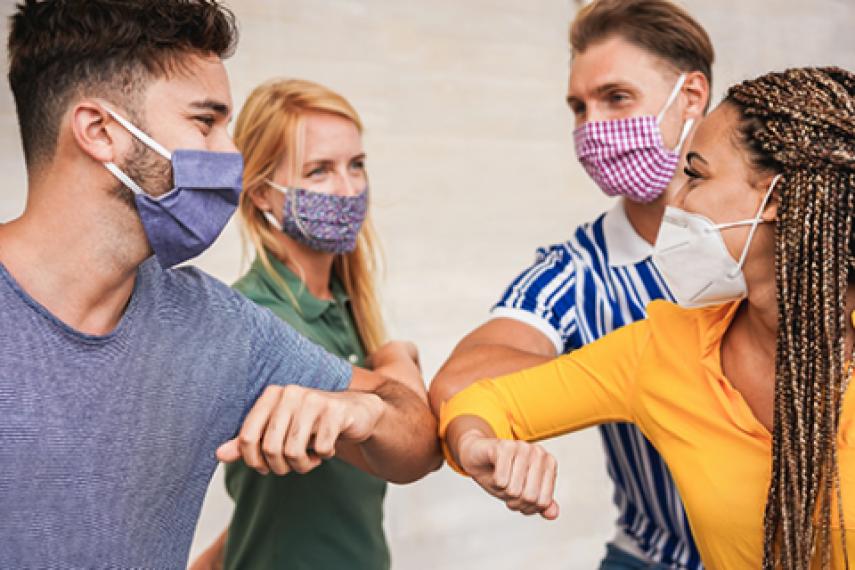
The U.S. Department of Education (ED) Federal Student Aid office is actively watching the COVID-19/coronavirus emergency. If you are a student with an outstanding student loan, some changes are underway that may affect you.
How Are My Student Loans Affected By COVID-19?
Interest and principal payments being made on federally-held student loans are suspended automatically through September 30, 2021.
These payments were suspended through the CARES Act through September 30, 2020. The suspension has been extended until September 30, 2021, by an Executive Order to the Department of Education.
The Secretary of Education, on March 20, 2020, directed the office of Federal Student Aid to offer certain types of relief on ED held federal student loans, which include:
- Stop collections on defaulted loans
- Suspend loan payments
- Set 0% interest rates for a 60-day period
The CARES Act or Coronavirus Aid, Relief, and Economic Security Act, was passed by Congress and signed by the former president on March 27, 2020. It provided these measures of relief through September 30, 2020.
Secretary of Education Betsy DeVos announced on December 4, 2020 to extend these programs until January 31, 2021.
President Biden signed an executive order on January 22, 2020 to extend the CARES Act student loan relief until September 30, 2021.
Here's what you need to know:
- Monthly payments and interest on federally-held loans will be suspended through September 30, 2021.
- You do not have to take any action on your loan or contact your student loan servicer.
- Ensure your servicer has updated contact data and check your email or mail so you can receive information or updates regarding your loans.
- Suspended payments will count through September 30, 2021, towards all student forgiveness programs, if all other loan forgiveness program requirements are met.
What Relief Options Do I Have?
Here are some relief options available to you:
- Zero Percent Loan Interest
You will have a 0% interest rate from Mar 13, 2020 through Sep 30, 2021 on these types of student loans if they're loans owned by ED:- Nondefaulted and defaulted FFEL program loans
- Nondefaulted and defaulted direct loans
- Defaulted HEAL loans
- Nondefaulted and defaulted Federal Perkins loans
You do not need to pay to receive the administrative forbearance or 0% interest for your student loans. Certain companies might charge you a fee to provide you with federal student loan repayment help during the coronavirus emergency. These companies are not endorsed by or affiliated with the U.S. Department of Education (ED).
- All Payments Go Towards the Principal
During this 0% interest period, all your payments will be applied to your loan principal once all the accrued interest before March 13 is paid. - You May Request a Refund of Last Payment Before the Care Act Was Signed on March 27, 2020.
If you made a payment on March 13, 2020, through September 30, 2021, you can request a refund during the administrative forbearance period. Request your payment refund by contacting your loan servicer. - You May Continue Making Payments and Pay Off Loan Faster
Continue making payments between March 13, 2020, and September 30, 2021. It can help you pay down your loan faster because the entire payment will be applied to your loan principal once you pay all interest accrued before March 13, 2020.You can make payments and stay or opt-out of the administrative forbearance.
Making payments and staying in the administrative forbearance:
- If you want to continue to pay your loan during this period or if you want to pay less or more than your normal payment amount, you are free to do so up until the end of this period.
- You might not have the ability to continue with auto-debit payment during this period.
- You will not be billed.
- Visit your servicer's website or contact them directly to make payments.
Continuing to make payments and opting out of the administrative forbearance:
- Auto-debit payments will continue.
- You will be billed.
- Visit your servicer's website or contact your loan servicer to make a payment, opt out of the administrative forbearance or ask how you can start or continue auto-debit payments.
If you continue making regular payments or opt-out of the administrative forbearance but then have an income change, please call your loan servicer to discuss your options. You may be able to enroll in an income-driven repayment plan. That will lower your payments.
- Defaulted Loans
If you are rehabilitating a defaulted student loan, up through Sept 30, 2021, any missed payments due to the COVID-19 pandemic won't be considered a missed rehabilitation payment.
